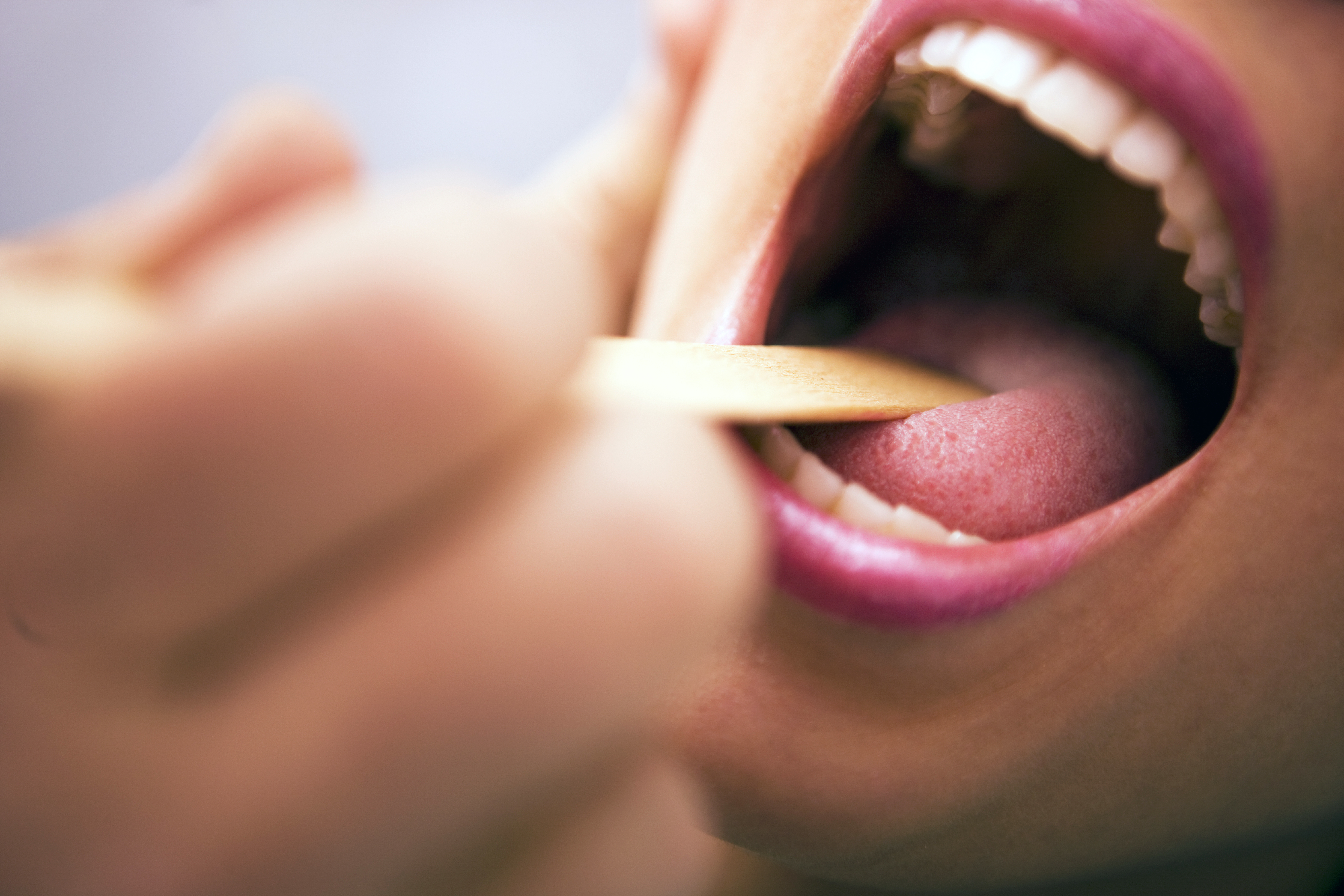- Diseases
- Acoustic Neuroma (16)
- Adrenal Gland Tumor (24)
- Anal Cancer (70)
- Anemia (2)
- Appendix Cancer (18)
- Bile Duct Cancer (26)
- Bladder Cancer (74)
- Brain Metastases (28)
- Brain Tumor (234)
- Breast Cancer (726)
- Breast Implant-Associated Anaplastic Large Cell Lymphoma (2)
- Cancer of Unknown Primary (4)
- Carcinoid Tumor (8)
- Cervical Cancer (164)
- Colon Cancer (168)
- Colorectal Cancer (118)
- Endocrine Tumor (4)
- Esophageal Cancer (44)
- Eye Cancer (36)
- Fallopian Tube Cancer (8)
- Germ Cell Tumor (4)
- Gestational Trophoblastic Disease (2)
- Head and Neck Cancer (14)
- Kidney Cancer (130)
- Leukemia (342)
- Liver Cancer (50)
- Lung Cancer (286)
- Lymphoma (278)
- Mesothelioma (14)
- Metastasis (30)
- Multiple Myeloma (100)
- Myelodysplastic Syndrome (60)
- Myeloproliferative Neoplasm (6)
- Neuroendocrine Tumors (16)
- Oral Cancer (102)
- Ovarian Cancer (178)
- Pancreatic Cancer (160)
- Parathyroid Disease (2)
- Penile Cancer (14)
- Pituitary Tumor (6)
- Prostate Cancer (150)
- Rectal Cancer (58)
- Renal Medullary Carcinoma (6)
- Salivary Gland Cancer (14)
- Sarcoma (238)
- Skin Cancer (300)
- Skull Base Tumors (56)
- Spinal Tumor (12)
- Stomach Cancer (66)
- Testicular Cancer (28)
- Throat Cancer (92)
- Thymoma (6)
- Thyroid Cancer (100)
- Tonsil Cancer (30)
- Uterine Cancer (86)
- Vaginal Cancer (18)
- Vulvar Cancer (22)
- Cancer Topic
- Adolescent and Young Adult Cancer Issues (22)
- Advance Care Planning (12)
- Biostatistics (2)
- Blood Donation (18)
- Bone Health (8)
- COVID-19 (360)
- Cancer Recurrence (120)
- Childhood Cancer Issues (120)
- Clinical Trials (628)
- Complementary Integrative Medicine (22)
- Cytogenetics (2)
- DNA Methylation (4)
- Diagnosis (238)
- Epigenetics (6)
- Fertility (62)
- Follow-up Guidelines (2)
- Health Disparities (14)
- Hereditary Cancer Syndromes (128)
- Immunology (18)
- Li-Fraumeni Syndrome (8)
- Mental Health (122)
- Molecular Diagnostics (8)
- Pain Management (62)
- Palliative Care (8)
- Pathology (10)
- Physical Therapy (18)
- Pregnancy (18)
- Prevention (936)
- Research (390)
- Second Opinion (78)
- Sexuality (16)
- Side Effects (616)
- Sleep Disorders (10)
- Stem Cell Transplantation Cellular Therapy (216)
- Support (408)
- Survivorship (328)
- Symptoms (182)
- Treatment (1788)
Does proton therapy have side effects for head and neck cancer patients?
4 minute read | Published October 22, 2020
Medically Reviewed | Last reviewed by an MD Anderson Cancer Center medical professional on October 22, 2020
For patients with complex head and neck tumors, proton therapy allows us to treat the tumors effectively while minimizing the radiation dose to vital structures such as the eyes, mouth, and brain. That means a patient’s vision, smell, taste, and swallowing may not be affected by proton therapy. It also means side effects such as nausea, severe dry mouth, difficulty swallowing, loss of taste, and thyroid dysfunction are not as severe with proton therapy.
But some head and neck cancer patients will experience skin irritations, mouth sores, sore throat and painful swallowing due to the tumor and treatment location.
As nurses at MD Anderson Proton Therapy Center, we get a lot of questions from head and neck cancer patients and caregivers about managing these proton therapy side effects. Here’s how we answer some of the most common ones.
How do I deal with skin irritations from proton therapy?
We recommend that patients wash the affected skin daily with mild moisturizing soap to cleanse. Use an unscented moisturizer starting on the first day of treatment. Do not use anything abrasive on the skin, and avoid wearing shirts with collars. Use an electric razor, and avoid aftershaves or perfumes. Do not apply makeup to the affected area and avoid direct sunlight.
Why is oral care important during proton therapy?
Oral care is important during and after treatment. Mouth sores can become infected, so practice good oral hygiene and tell your care team about any symptoms. Use baking soda and salt rinses four to six times a day. This helps the PH balance and reduces bacteria in your mouth. Brush your teeth with a soft toothbrush after every meal and at bedtime. Avoid commercial mouthwashes that contain a large amount of salt or alcohol.
Also be sure to perform the jaw and neck exercises as instructed by your medical team. These exercises will help with stiffness or tightening of the jaw and neck, mouth opening challenges, and difficulty chewing.
How do I avoid unwanted weight loss?
Many cancer patients lose weight unexpectedly because they struggle with nausea or cannot eat well during treatment. Proper nutrition can help you maintain your weight and hydration, which helps ensure successful treatment results. Good nutrition will also improve your quality of life during and after cancer treatment.
Eating soft, moist foods and avoiding anything that irritates your mouth, such as spicy, rough, acidic, extreme temperatures, or carbonated drinks. If you’re having trouble eating, you may want to try meal replacement drinks like Boost and Ensure. It's also important to talk to your doctor about any vitamins, nutritional or herbal supplements you're taking.
You should also avoid drinking alcohol or using tobacco products, as these habits can increase treatment side effects.
How can I prevent dry mouth?
Dry mouth can make eating, speaking, and sleeping more difficult. Without saliva, patients also run the risk of increased bacterial growth, bone infection, and nutritional deficiencies.
You can avoid dry mouth by chewing sugar-free gum, over-the-counter saliva substitutes, and staying hydrated. It also helps to swish a baking soda/water solution around your mouth a few times a day. It may be beneficial to sleep with a cool-mist humidifier next to your bed during and after treatment as well.
How can I reduce fatigue?
Fatigue is a normal and often expected side effect of cancer treatment. Try taking naps earlier in the day so that you don’t disrupt your sleep pattern.
Some patients find their fatigue improves with light exercise such as walking. Be sure to check with your care team before starting a new exercise routine.
What can I expect after proton therapy for head and neck cancers?
Side effects from proton therapy may continue or even increase for two to three weeks after treatment for head and neck cancer patients. Be sure to continue the regimen your care team recommends for caring for your mouth, throat, skin, and maintaining proper nutrition. It usually takes four to six weeks for your body to heal after proton therapy.
Remember, your care team is here for you and will provide resources and specific product recommendations for your side effects. Be sure to follow them. The patients that do the best are those who get ahead of their side effects.
Request an appointment at MD Anderson online or by calling 1-844-830-9473.
Related Cancerwise Stories

It is OK to ask questions.
Rochelle Manning
Nurse Manager





